



The second workshop day occurred at the Library Annexe, Pondicherry University, focusing on engaging academicians across disciplines in shaping an interdisciplinary curriculum. The primary goal was to integrate critical perspectives from various academic fields, such as psychology, computer science, economics, and management, into curriculum design for courses related to tourism, emerging technologies, and business trends in Asian economies.
The workshop witnessed active participation from esteemed professors and academicians who shared thought-provoking insights and recommendations. Some of the key suggestions and themes discussed include:
Curriculum Enrichment and Pedagogical Approaches:
A strong emphasis was placed on internship-based and skill-oriented teaching methodologies in tourism education to enhance employability and industry readiness. Integrating entrepreneurial skill development into academic frameworks was highlighted as a key step toward fostering a start-up mindset among students. The need to strengthen strategic partnerships among
academia, industry, and government through green competencies, technological integration, and entrepreneurship was repeatedly emphasised.
Policy, Trade, and Internationalisation
Discussions included easing foreign exchange regulations to facilitate Free Trade Agreements (FTAs) and identifying niche tourism sectors aligned with such agreements. Emphasis was placed on aligning tourism with international trade policies to boost tourism-related trade. Liberalisation of FDI policies was recommended to attract foreign investments in tourism infrastructure.
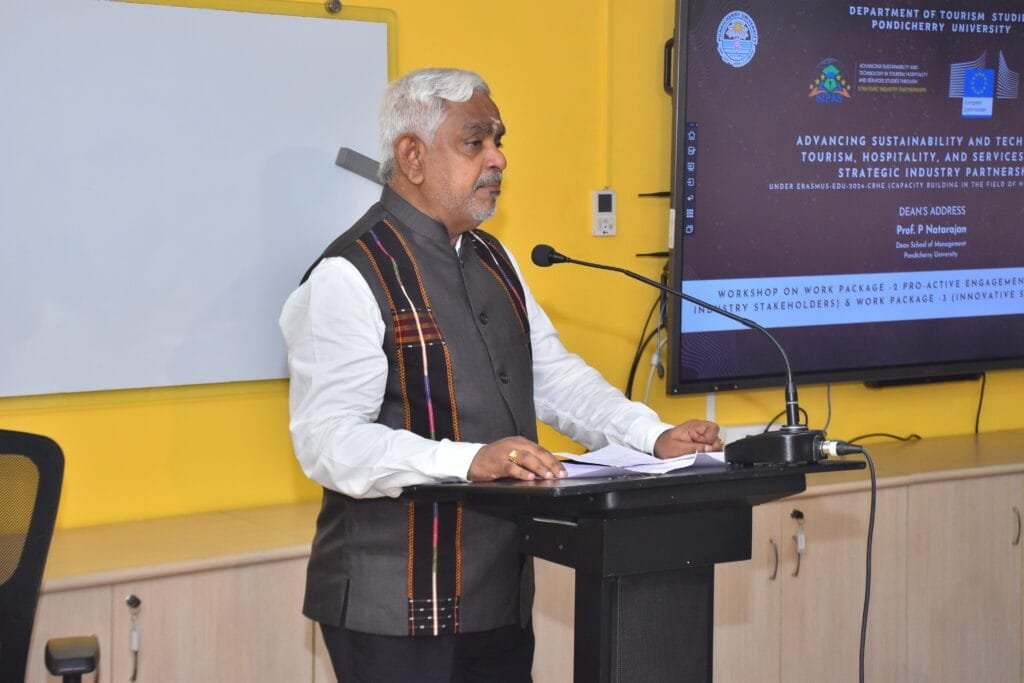
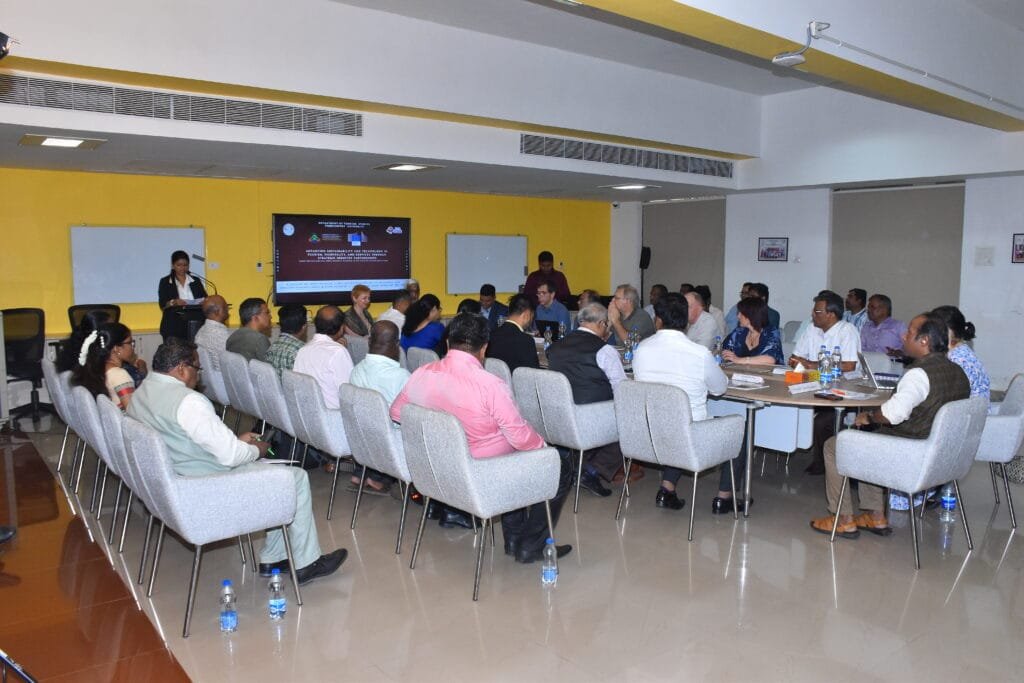
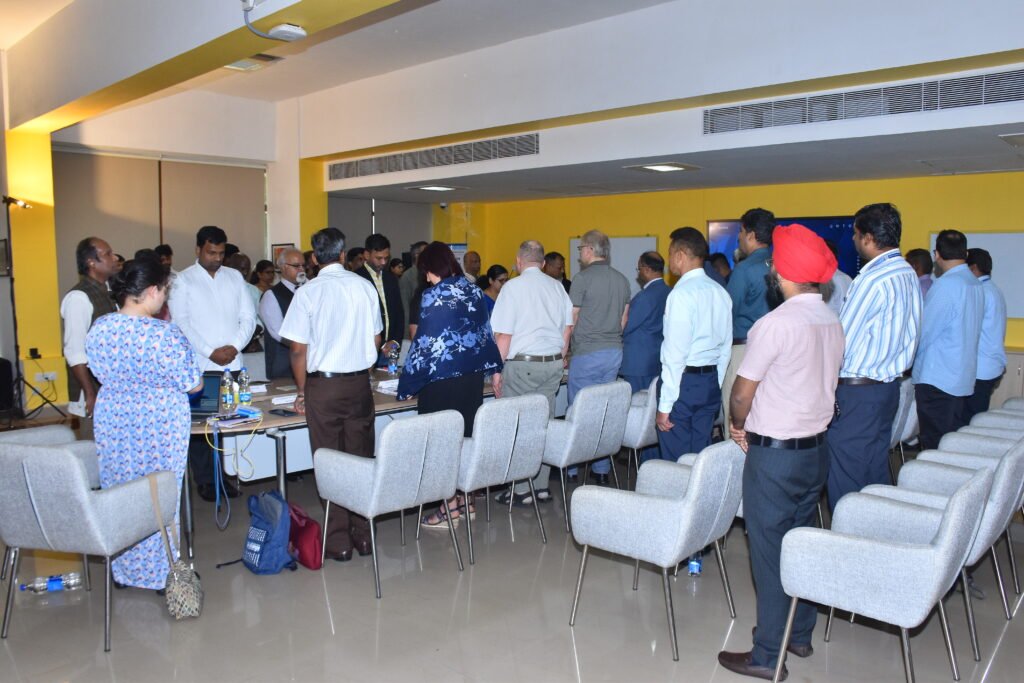
Tourist Experience and Consumer Insights
The importance of measuring the Tourist Satisfaction Index (TSI) and using tourist feedback as a basis for policymaking was underlined. Stakeholder mapping, value chain analysis (VAC), and SWOT frameworks were recommended as core components in the curriculum to analyse and address such challenges.
Technological Integration in Tourism Education
Experts proposed establishing AR/VR simulation labs and games to simulate real-world tourism and hotel management scenarios. Gamification of tourism education was suggested to engage students better and illustrate the end-to-end dynamics of tourism operations. Technology-driven solutions like AI chatbots, AR-integrated smartphones, and personalised services using big data analytics were seen as vital to future-ready tourism.
Sustainability and Responsible Tourism
A comprehensive discussion was held on promoting responsible tourist choices at each stage of the travel journey (pre-trip, on-trip, and post-trip). Localization of SDGs (LSDGs), bio-plastic management, climate-resilient infrastructure, and simulation-based disaster preparedness models.
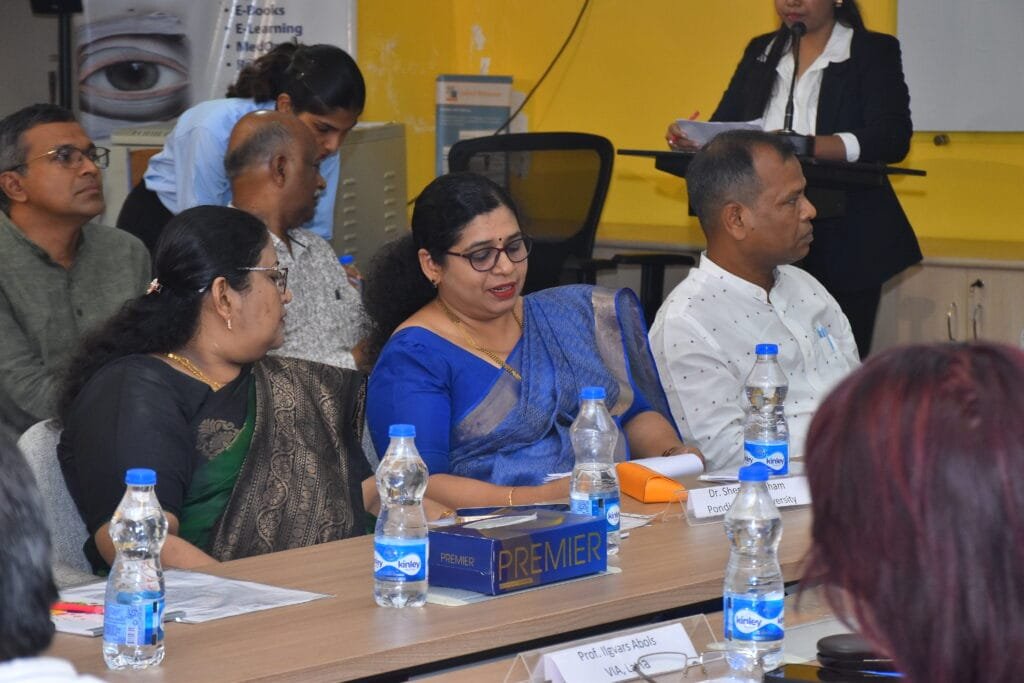
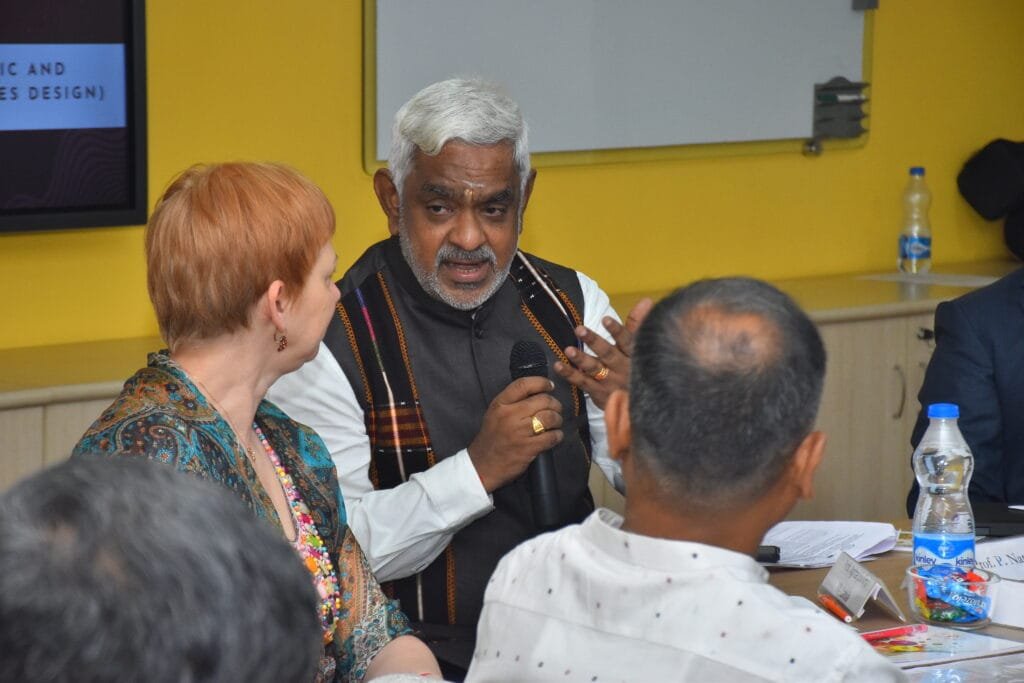

Institutional and Systemic Recommendations
Integrating Digital Tourism Missions and developing systems to offer real-time destination data, including services, price comparisons, hotspots, and civic infrastructure, was proposed. A call was made to encourage domestic consumption and domestic investment as engines of growth. Participants encouraged embedding change management, tourism systems design,
and futuristic business models into coursework for a more resilient and responsive tourism ecosystem.
Conclusion and Way Forward
The two-day workshop successfully catalyzed a robust dialogue between academic institutions, industry experts, and policy-makers, emphasizing the urgent need to rethink tourism education in light of technological advancements, changing consumer behavior, and sustainable development imperatives. A clear roadmap emerged for interdisciplinary, data-driven, and future-ready curriculum design, with strong advocacy for localized solutions, entrepreneurship, and inclusive development